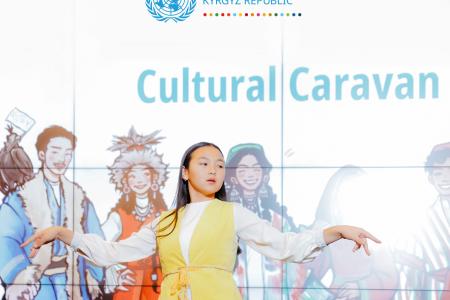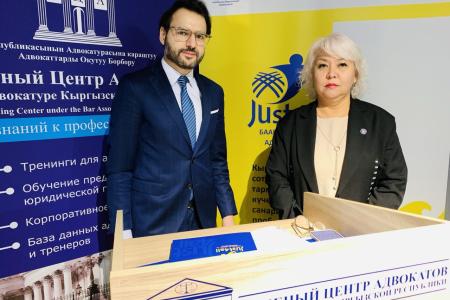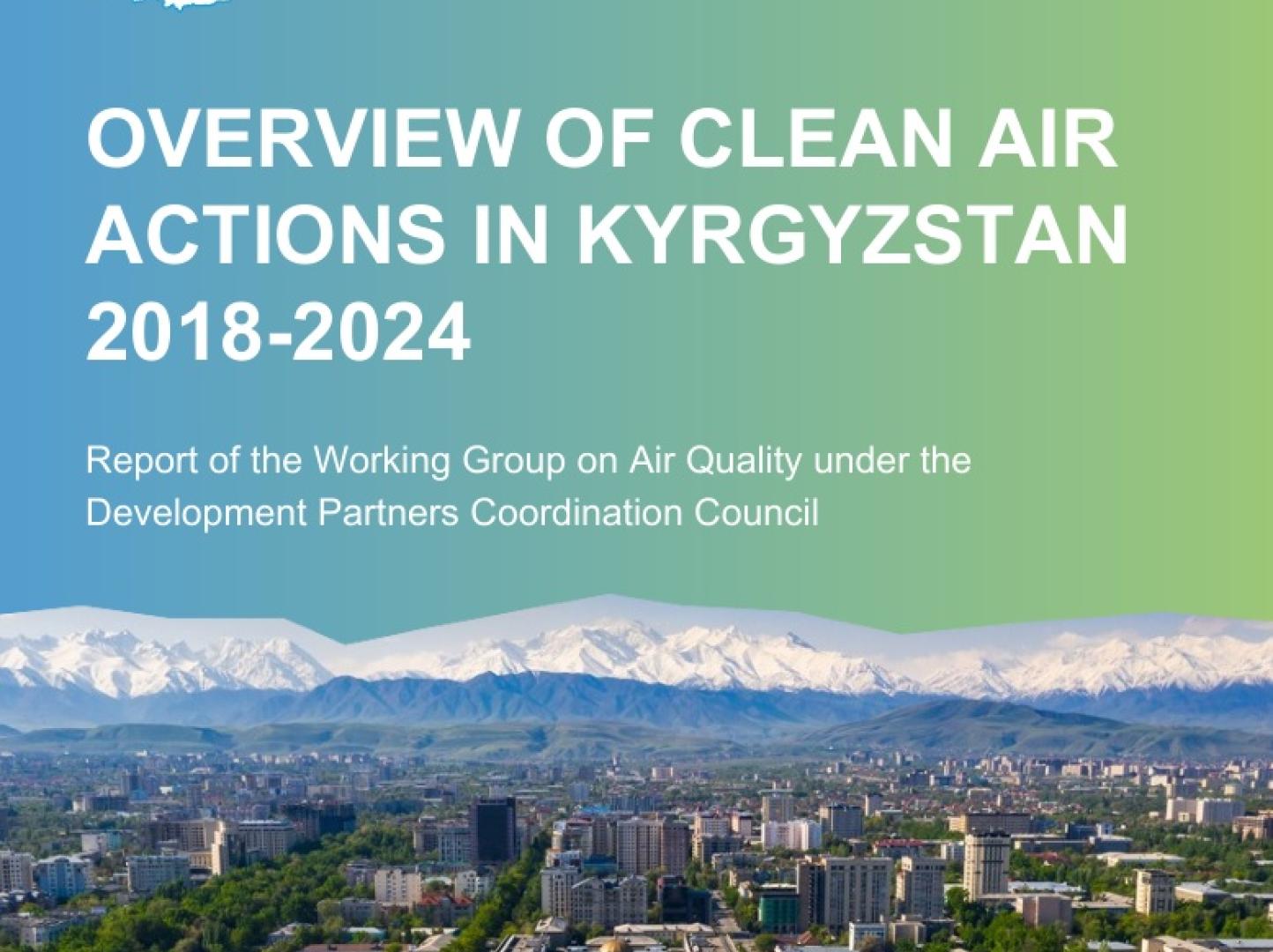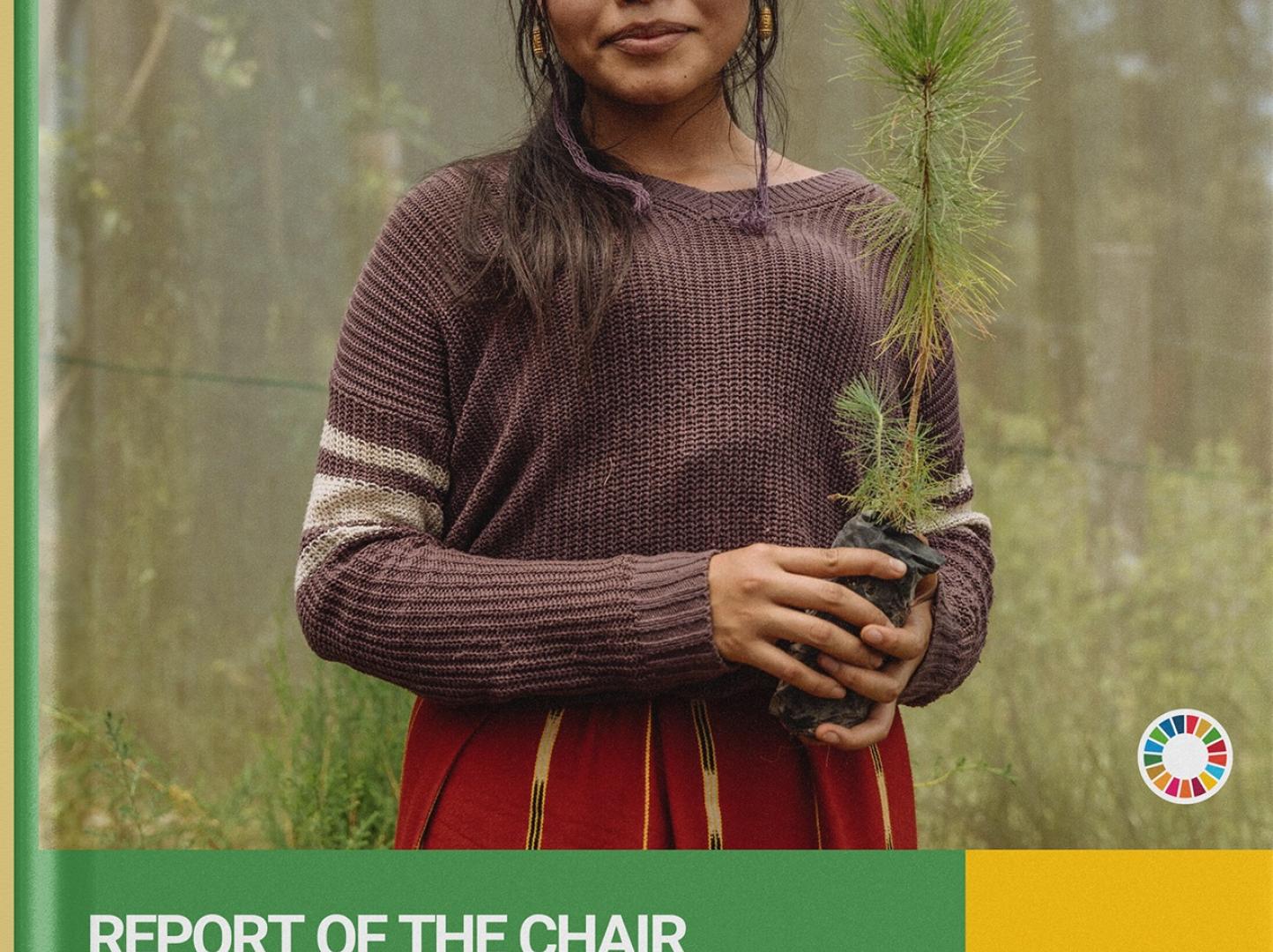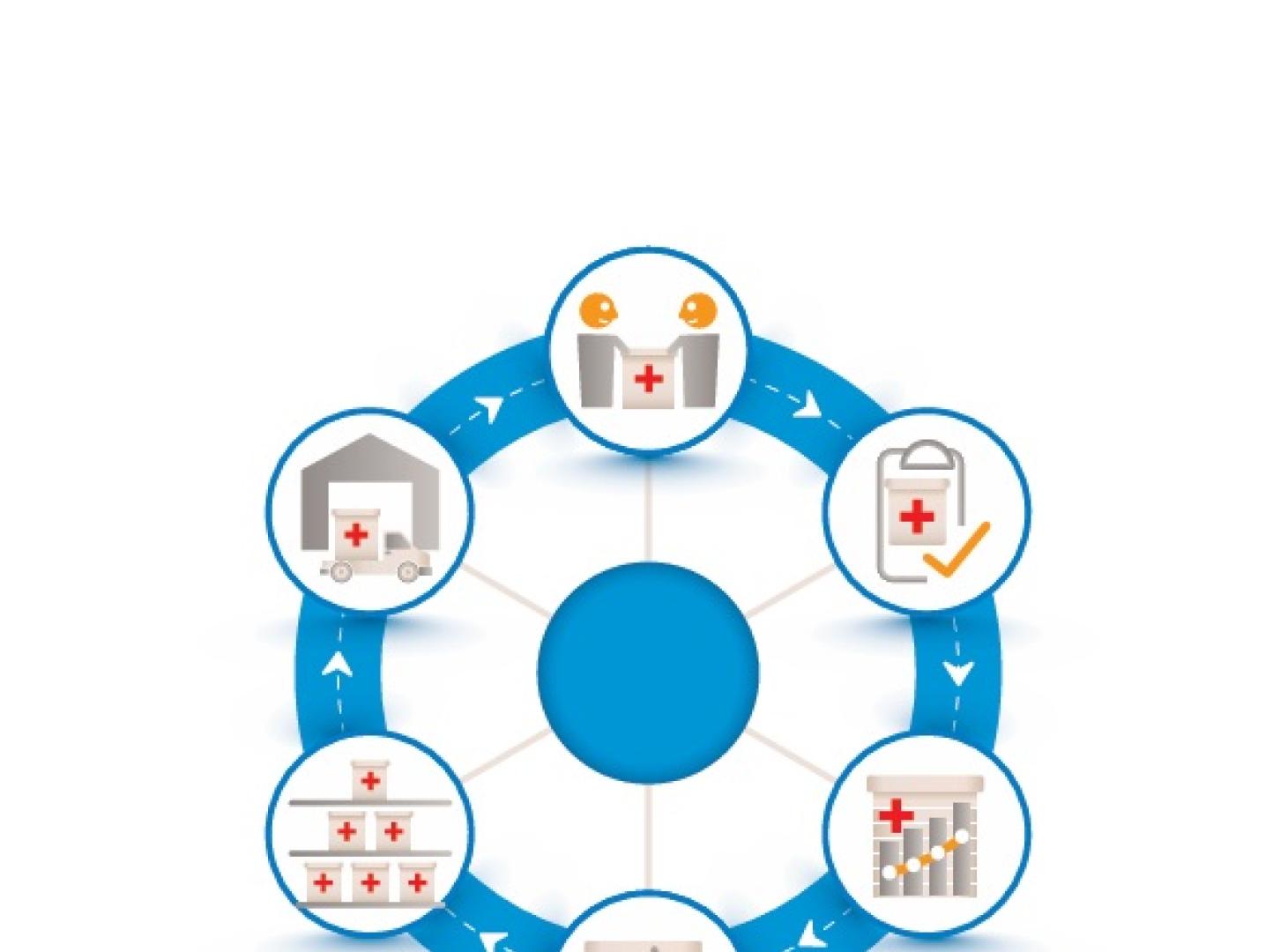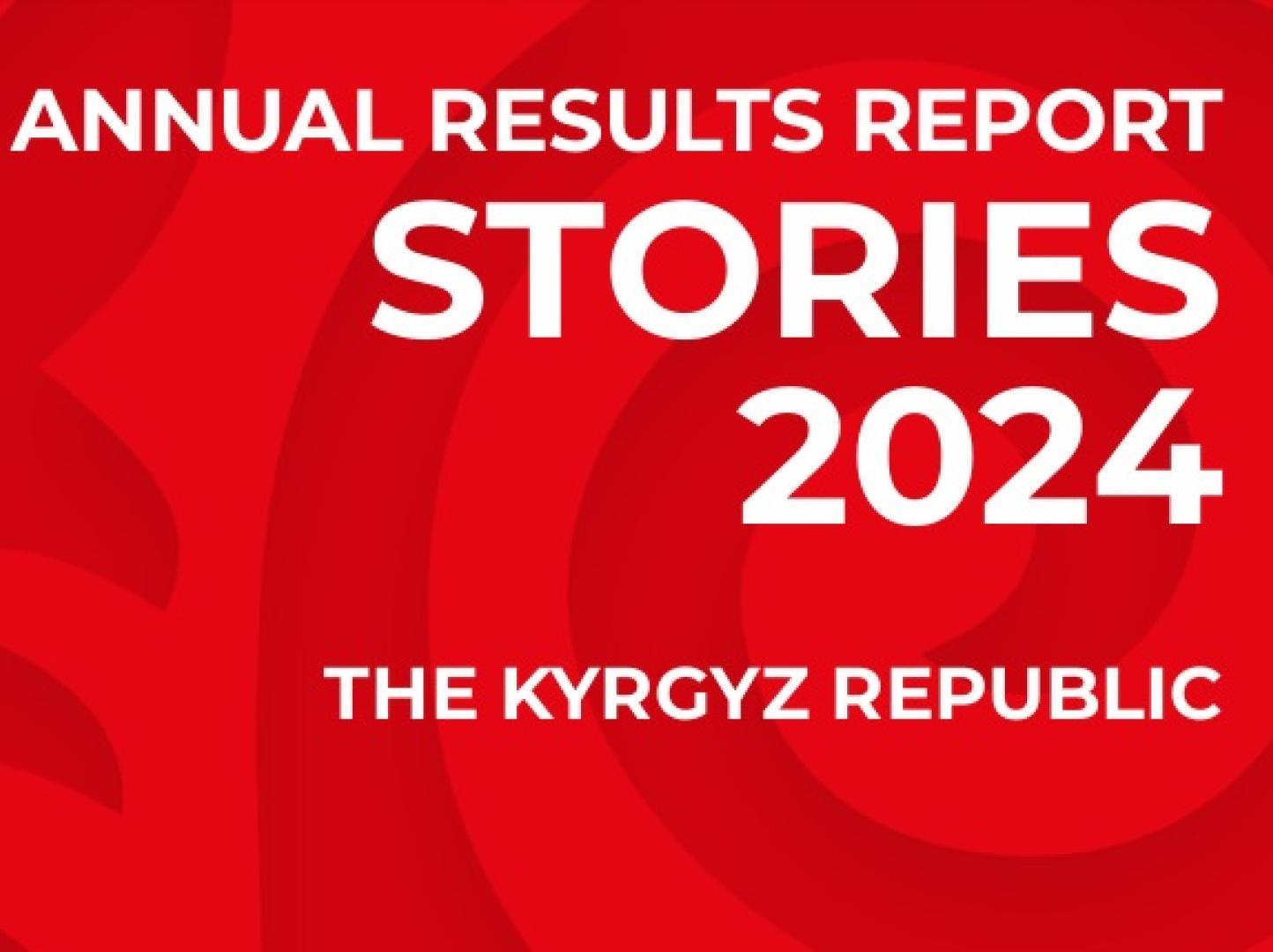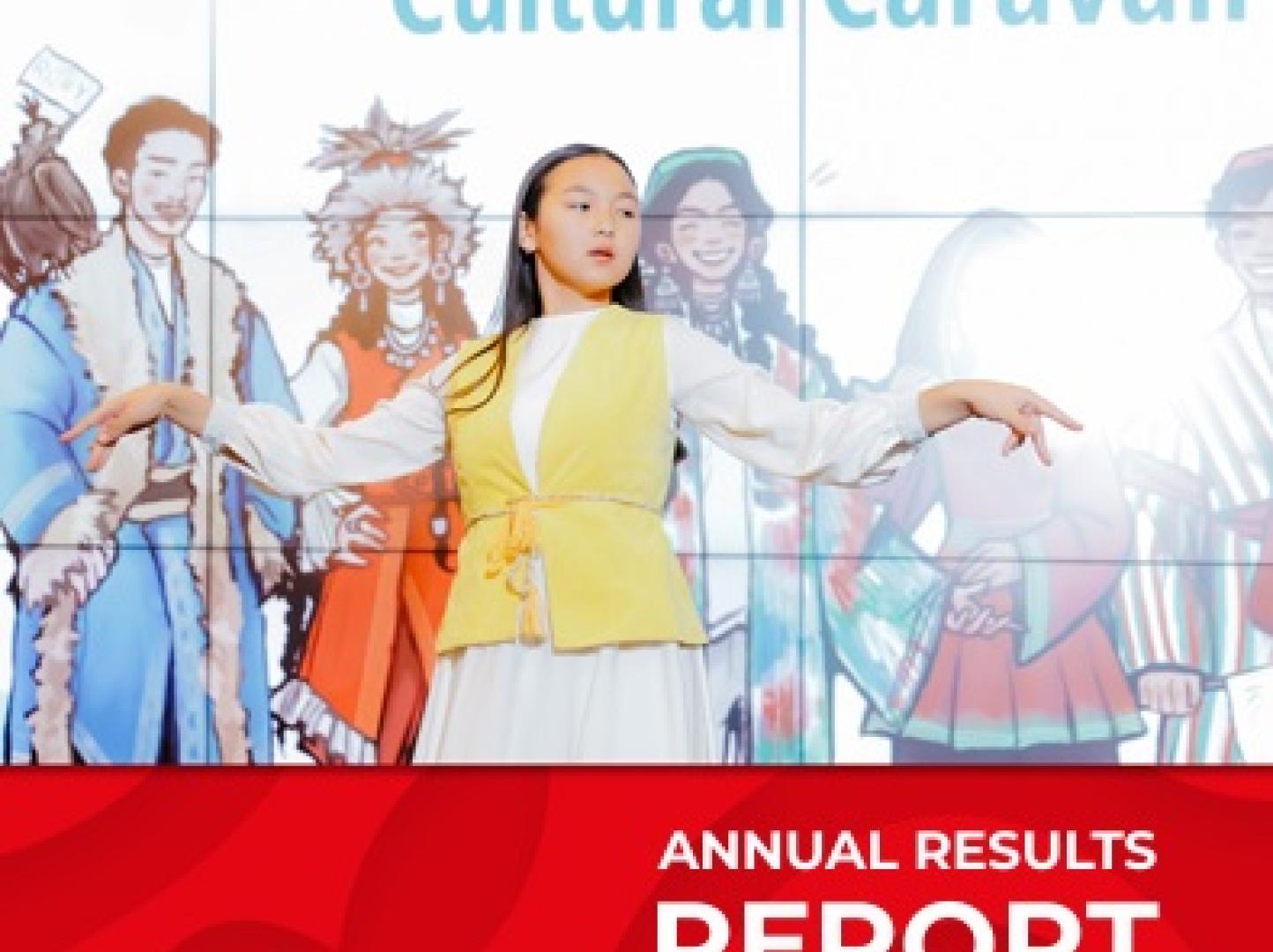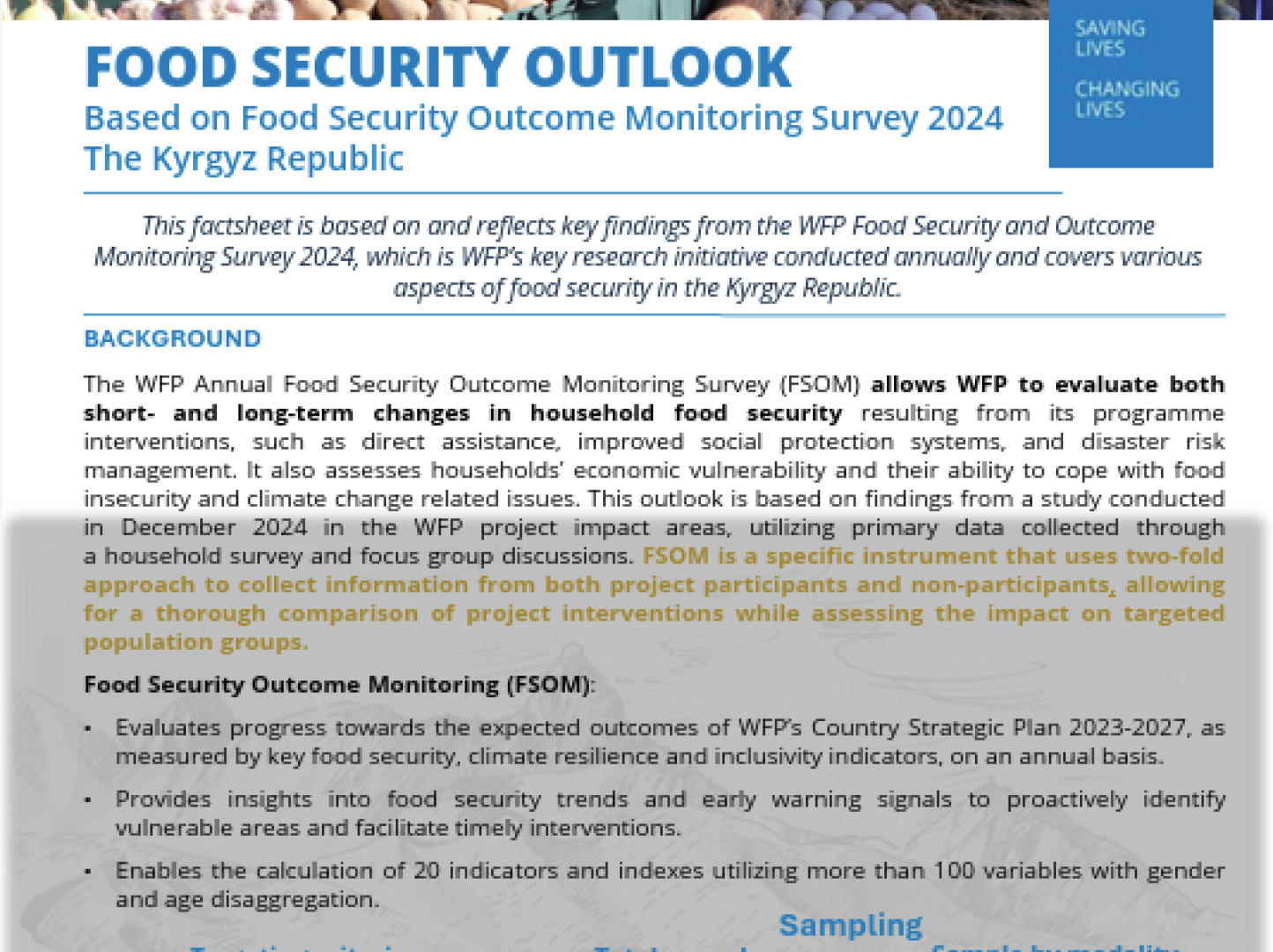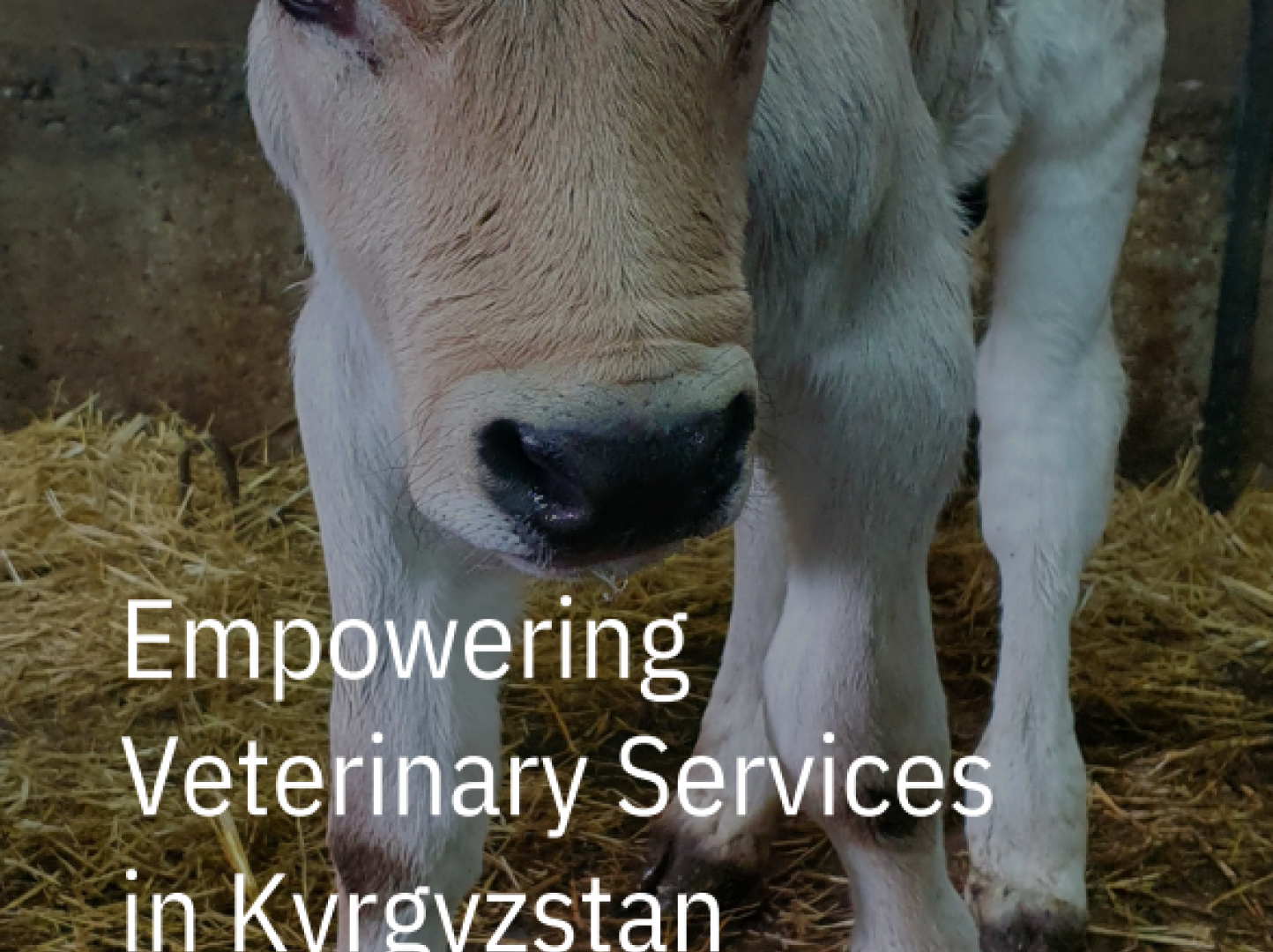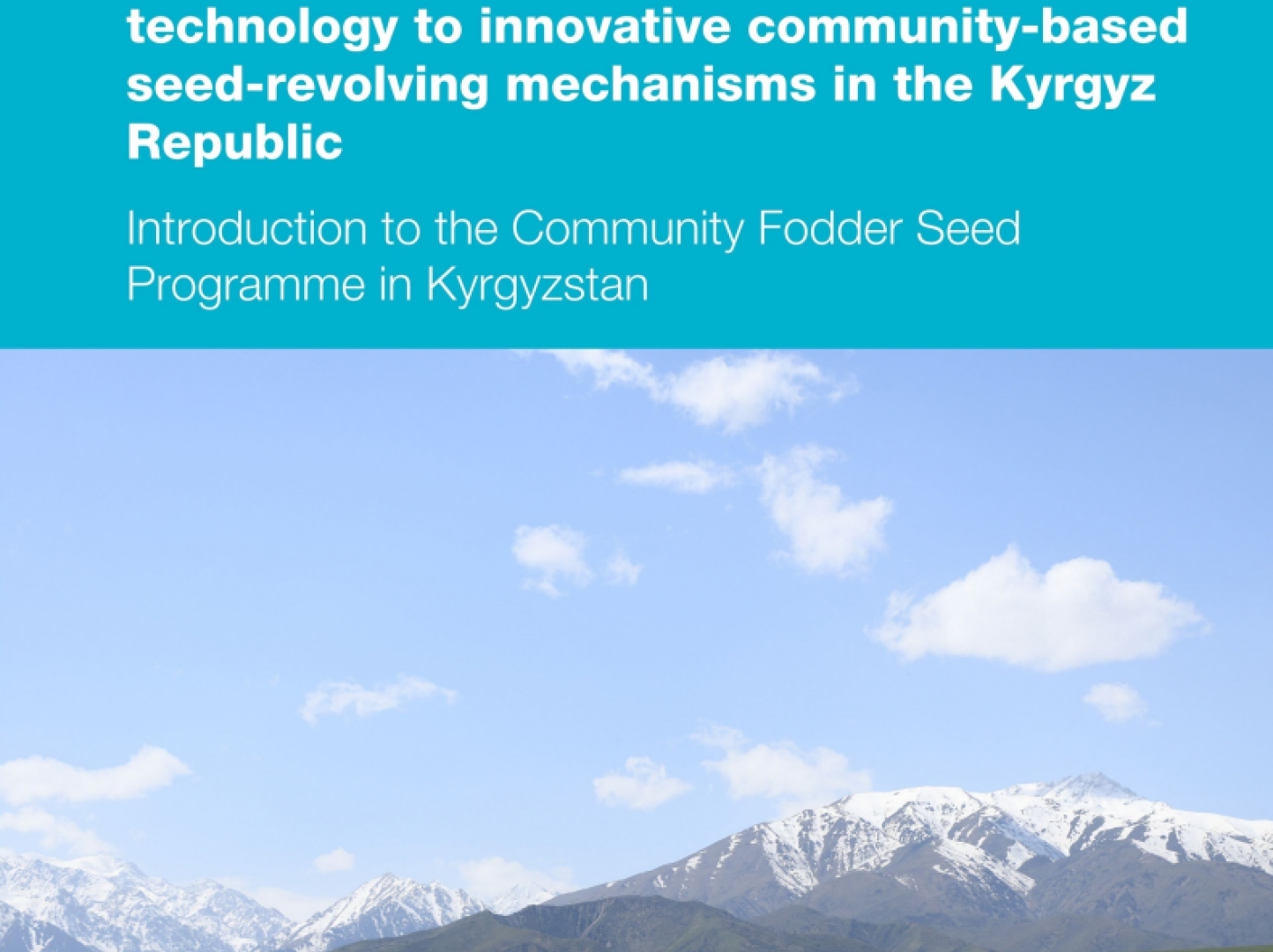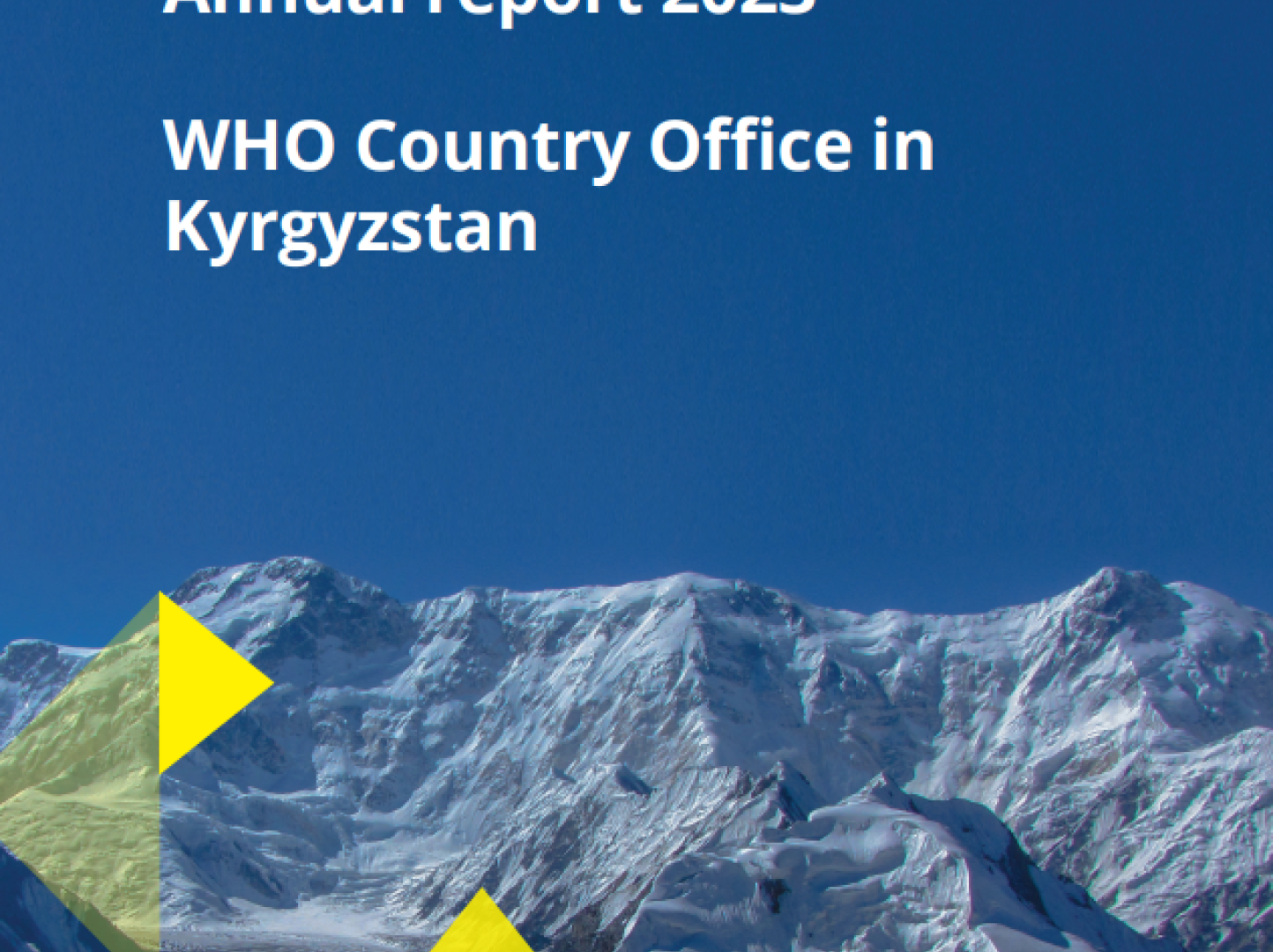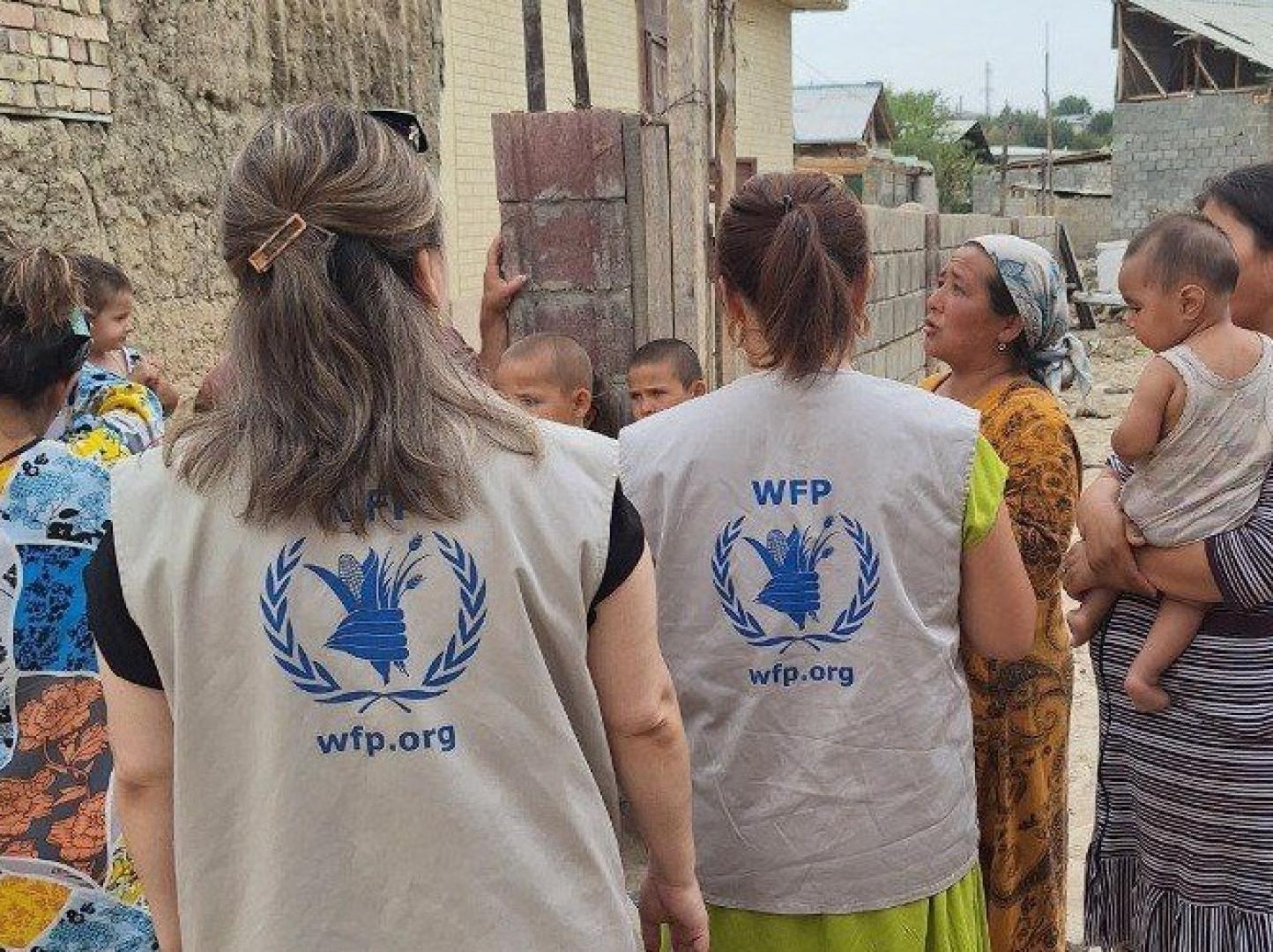Latest
Story
04 July 2025
Subcommittee on Prevention of Torture concluded its official visit to Kyrgyzstan for High-Level Talks
Learn more
Press Release
02 July 2025
Kyrgyzstan: Independent torture prevention watchdog should not be replaced, UN experts warn
Learn more
Speech
26 June 2025
Issyk-Kul Electoral Forum: “Modern Approaches to Electoral Participation: From Theory to Practice”
Learn more
Latest
The Sustainable Development Goals in Kyrgyz Republic
The UN and its partners in Kyrgyzstan are working towards achieving the Sustainable Development Goals. They address the global challenges we face, including those related to poverty, inequality, climate, environmental degradation, prosperity, and peace and justice for development that works for all people. The Goals interconnect and in order to leave no one behind, it is important to act in cooperation.
Press Release
22 September 2024
Inclusive Museum Initiative creates an accessible and inclusive environment at the National History Museum of Kyrgyzstan
The "Inclusive Museum" initiative, a collaborative effort between the United Nations Development Programme (UNDP) and the National Historical Museum of the Kyrgyz Republic, has revealed a comprehensive roadmap aimed at making cultural spaces in Kyrgyzstan more accessible and inclusive for persons with disabilities. Over the course of the initiative, from May to September 2024, international experts conducted complex assessment of the national legislation and National Historical Museum’s policies, infrastructure, services, and communication systems to evaluate their inclusivity and accessibility. These findings formed the foundation of several key strategic documents, including concept notes, communication strategy, roadmap, and catalog of solutions that outline how the museum—and other cultural institutions—can be more welcoming to all visitors. Following the principle of "Nothing About Us Without Us”, the assessment was conducted with the participation of persons with various disabilities, museum staff, and expert community. “The importance of this initiative goes far beyond a single museum. The inclusive museum will be an important step towards the creation of broad inclusion not only for our institution, but also for all cultural organizations of the republic. We are confident that the successful experience we are accumulating through this project will serve as a model for other museums, libraries, theaters, and cultural centers. This project demonstrates that inclusion is not just an achievement, it is a process that requires a systematic approach, involvement of all stakeholders and continuous improvement,” – said Baktybek Sekimov, Advisor to the Minister of Culture, Information, Sports, and Youth Policy of the Kyrgyz Republic. Key strategic documents have been validated by national stakeholders and presented to the public, including the Ministry of Culture, Information, Sports, and Youth Policy of the Kyrgyz Republic, the Ministry of Labour, Social Welfare, and Migration, the Council for Persons with Disabilities under the Government of the Kyrgyz Republic, as well as representatives of international and local public organizations and museum community. “We are confident that openness and accessibility of museums in Kyrgyzstan will contribute to diversity, sustainability, and full inclusion of persons with disabilities in the life of society,” said Alexandra Solovieva, UNDP Resident Representative in the Kyrgyz Republic.“At today's event organized by UNDP, I emphasized a few new things for me, and the ideas discussed were very good. The most important thing is that it should not remain on paper, we need to work with specialized ministries and agencies. It is necessary to implement and integrate these ideas into real life so that our museums throughout the Kyrgyz Republic become accessible,” – said Iskender Sultanaliev, Head of the Phenomenon Public Foundation that supports the potential of visually impaired people. The “Inclusive Museum” initiative has risen the importance of comprehensive and systemic approach toward assessment of cultural institutions’ inclusiveness as well as unveil opportunities for revising legislation and policies, rethinking the concept of universal design and accessibility. UNDP encourages everyone to join forces to create a more inclusive, open and equitable society, and thus improve the quality of life of people with disabilities and enable them to live independent and fulfilling lives. About the initiative “Inclusive Museum” is a joint initiative of the United Nations Development Programme and the National Historical Museum of the Kyrgyz Republic to assess the accessible environment of the Museum to develop recommendations for creating an inclusive environment and making the museum accessible to persons with various disabilities.For media inquiries please refer to Ainagul Abdrakhmanova, UNDP Communications Officer, at ainagul.abdrakhmanova@undp.org.
1 of 5
Press Release
20 September 2024
UN expert on rights of persons with disabilities to visit Kyrgyzstan
The UN Special Rapporteur on the rights of persons with disabilities, Heba Hagrass, will conduct an official visit to Kyrgyzstan from 23 September to 3 October 2024.Hagrass will examine laws, policies and measures the Government is taking to protect and promote the rights of persons with disabilities in the country. The visit is taking place at the invitation of the Government.The expert will travel to Bishkek, Osh, Tokmok, and other areas to meet with Government authorities, national human rights institutions, persons with disabilities and their representative organisations, civil society, UN agencies, and other stakeholders.She will also visit institutions for people with disabilities, including for children, and establishments providing services for persons with disabilities. The Special Rapporteur will hold a press conferenceon Thursday 3 October at 11.30 a.m. local time at the UN House in Bishkek, 160 Chui Avenue. Access will be strictly limited to journalists.The expert will present her report to the Human Rights Council in March 2025.***Heba Hagrass (Egypt) is the UN Special Rapporteur on the rights of persons with disabilities, appointed by the Human Rights Council in October 2023. A sociologist by training, she is an advocate, an international disability consultant, and a researcher on the rights of persons with disabilities with an extensive experience in Egypt, the Arab Region, and worldwide. She was notably a representative of women with disabilities that participated in the drafting of the Convention of the Rights of Persons with Disabilities. In Egypt, Ms. Hagrass promoted the rights of persons with disabilities in legislative reforms as Member of Parliament between 2015 and 2020 and served as the Secretary General of the National Council for Disability Affairs. She is a founding member of the Arab Organization of Disabled People where she was active between 1998 and 2008, including as the head of its Women’s Affairs Committee.The Special Rapporteurs are part of what is known as the Special Procedures of the Human Rights Council. Special Procedures, the largest body of independent experts in the UN Human Rights system, is the general name of the Council’s independent fact-finding and monitoring mechanisms that address either specific country situations or thematic issues in all parts of the world. Special Procedures’ experts work on a voluntary basis; they are not UN staff and do not receive a salary for their work. They are independent from any government or organization and serve in their individual capacity. UN Human Rights country page: KyrgyzstanFor media enquiries and additional information, please contact Barbora Zamrska at barbora.zamrska@un.org; hrc-sr-disability@un.org or Aiperi Alymbekova aiperi.alymbekova@un.org (Bishkek). For media inquiries related to other UN independent experts, please contact Dharisha Indraguptha (dharisha.indraguptha@un.org) or John Newland (john.newland@un.org).Follow news related to the UN’s independent human rights experts on Twitter @UN_SPExperts.
1 of 5
Press Release
16 September 2024
Five maternity hospitals received equipment to improve the quality of services for pregnant women, mothers and newborns
A ceremony of handing over equipment at the Perinatal Center of the National Center for Maternity and Child Protection, organized by the Ministry of Health of the Kyrgyz Republic and the United Nations Population Fund (UNFPA) on 12 September 2024, has become another contribution and a significant step towards improving maternal health. As part of the quality improvement project, this initiative is designed to reduce preventable severe maternal morbidity in the country. The ceremony was attended by high-ranking officials, including the First Deputy Minister of Health, Meder Ismailov, who noted in his speech: “This project is very important for the country, as it is aimed at reducing preventable maternal morbidity. I would like to take this opportunity to thank the Government of India for this support and UNFPA for implementing this project, and I wish my colleagues good results in implementing this vital project.”The equipment was handed over as part of a project funded by the India-UN Development Partnership Fund. It aims to improve access to quality medical services through the use of the Obstetric Surveillance and Response System (OSRS) and teleconsultations in five pilot maternity hospitals in Kyrgyzstan.“It is a great honor for me to be a part of this event as well as a project related to the health of the population of the Kyrgyz Republic. Health is the most important value in life, and when it comes to mothers, the issue becomes paramount. And when we invest in the health of a mother, we invest not only in the health of one person, but also in the health of her children, her loved ones and, accordingly, the whole society. Such health-related costs become not expenses, but investments. And when we invest in the health of the population, we contribute to the development of the country itself,” said Mr. Mohan Singh, Chargé d'Affaires of the Embassy of India in the Kyrgyz Republic. During the ceremony, which was timed to coincide with the United Nations Day for South-South Cooperation, a wide range of necessary equipment was handed over, emphasizing the universal desire to strengthen the health of mothers and newborns. Among the gifts were 40 tablets for monitoring the process of childbirth and providing assistance to pregnant women and newborns during labor and delivery in real time, and 21 computers for the introduction of telemedicine and teleconsultations in real time in case of urgent obstetric conditions.In addition, in order to automate the process of issuing birth certificates and integrate the service on the State Portal of Electronic Services, computers will be installed in pilot maternity hospitals as an important step in improving the quality of public services and simplifying procedures for citizens. This will allow parents to issue birth certificates for their children online while still in maternity hospitals, which will significantly speed up the process of obtaining a document and reduce the need to visit government agencies.With mentioned solutions, the Ministry of Health of the Kyrgyz Republic seeks to create more convenient and efficient conditions for citizens, simplifying bureaucratic processes and reducing the time spent on obtaining important documents. In addition to technical equipment, 100 power banks, 100 blankets for low-weight and premature newborns to maintain and preserve the thermal chain, 100 elbow dispensers for organizing work taking into account infection control, and 100 pairs of closed shoes for surgical medical personnel for use in operating rooms and sterile zones, as an important element of professional uniforms in order to comply with hygiene and sanitary safety standards, will be delivered to five maternity hospitals of the secondary and tertiary levels, namely Osh Interregional United Clinical Hospital, Jalal-Abad United Clinical Hospital, Issyk-Kul and Chui Regional United Hospital and the Perinatal Center of the National Center for Maternity and Child Protection.This comprehensive initiative has the potential to make a significant contribution to improving maternal health in Kyrgyzstan. By leveraging technology and fostering collaboration, it demonstrates the commitment of all involved partners to ensuring the safety and well-being of women and newborns across the country.
1 of 5
Speech
12 August 2024
Statement of UN Resident Coordinator, Ms Antje Grawe, on the occasion of International Youth Day
While I regret that I cannot be with you in person to celebrate the energy, creativity, and potential of young people in Kyrgyzstan and around the world, I am very much honored to send this celebratory message. Since its establishment by the UN General Assembly in 1999, International Youth Day on 12 August highlights youth issues and their crucial role in global society.This year’s International Youth Day is particularly special for several reasons:This year’s theme “From Clicks to Progress: Youth Digital Pathways for Sustainable Development,” emphasizes the pivotal role of youth in harnessing technology to achieve the Sustainable Development Goals (SDGs). In Kyrgyzstan and globally, young people are using digital tools to address local and global challenges and “turn clicks into progress” (UN Secretary-General, António Guterres).Given the current state of the Sustainable Development Goals (SDGs), empowering youth is essential. As the Secretary-General stated on the occasion, achieving the SDGs requires a seismic shift that can only happen by empowering young people and working with them as equals. This includes bridging digital divides, boosting education investments, tackling gender biases in the tech industry, and supporting young innovators in expanding digital solutions.Youth empowerment and participation are central to this year’s Summit of the Future, convened by the UN Secretary-General in New York on 22 and 23 September at the level of Heads of States, including President Japarov. The Summit is an opportunity to build global problem-solving mechanisms that are more networked and inclusive, with youth being given a key role. The Secretary-General has called on global leaders to use the Summit to advance youth participation at every level, establish youth consultative bodies, promote intergenerational dialogue and scale up funding opportunities for young people everywhere.Where else could this call resonate more than here in Kyrgyzstan, where young people make up nearly one-third of the population and are demonstrating daily how vital their fresh perspectives and innovative solutions are in advancing inclusive social and economic development and addressing challenges like climate change, environmental protection, social justice, health or education.Let’s use this year’s International Youth Day and today’s event as a building block towards the Summit’s promise of greater youth participation in decision-making that shapes their future, and commit to investing in young people's potential.By providing tools, resources, and opportunities, we can harness their energy and creativity for sustainable development and a better future for all.The United Nations in Kyrgyzstan supports youth empowerment through initiatives like the Youth Advisory Board to the UN Country Team, which gives young people a voice in shaping the UN’s partnership with Kyrgyzstan to advance the SDGs. We will also continue investing in health, education reforms, employment, the creative industries, and digital literacy, among other, crucial for sustainable economy and inclusive and equitable development. Chon Rahmat.
1 of 5
Video
10 September 2024
Access to Markets Project: Artificial glaciers
The engineers have come up with an effective way to conserve freshwater - building artificial glaciers. Artificial glaciers not only provide better access to drinking water, but also improve pasture rotation, improve microclimate and increase soil moisture, reduce pressure on pastures, help adapt to climate change and mitigate its effects.The Access to Markets Project helped the authors of this initiative to set up 11 artificial glaciers by procuring the necessary materials, funding construction and installation, and conducting trainings to disseminate the method. In total, the authors have implemented 30 projects in six regions of Kyrgyzstan. This video collection was prepared within the framework of the Access to Markets Project funded by the International Fund for Agricultural Development (IFAD).The Access to Markets Project (ATMP) is an IFAD-funded project of USD 31.2 million, which was approved in 2016 and will end in December 2024. It aims to raise incomes and enhance economic growth in Kyrgyzstan's pastoralist communities. Its development objective is the improved access and integration of smallholder livestock farmers into remunerative markets for their products, leading to improved and equitable returns.
1 of 5
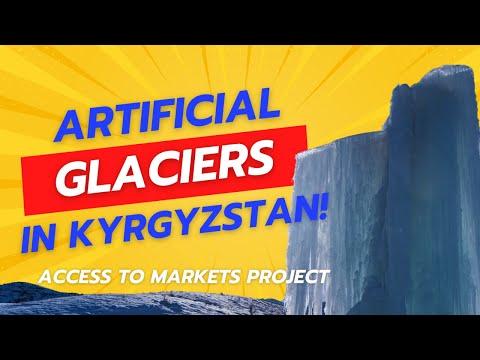
Story
04 July 2025
Subcommittee on Prevention of Torture concluded its official visit to Kyrgyzstan for High-Level Talks
The UN Subcommittee on Prevention of Torture (SPT), concluding its official visit to Kyrgyzstan for High-Level Talks, expressed its regret over the Parliament’s recent decision to abolish the country’s independent torture prevention body — the National Centre for the Prevention of Torture (NCPT) — without any public consultation or transparency or indeed a plan as to how the Ombuds Institution, which is to take over from the NCPT, is to fulfil this mandate. The SPT delegation, visiting Kyrgyzstan from 25 to 27 June, was composed of Elina Šteinerte (Head of Delegation and Vice-Chair for National Preventive Mechanisms) and Nika Kvaratskhelia (Country Rapporteur for Kyrgyzstan).During the visit, the delegation took part in a round table discussion on “The role and place of the National Centre for the Prevention of Torture in Kyrgyzstan’s anti-torture system”, held on 26 June — the International Day in Support of Victims of Torture. Organized by the NCPT in cooperation with UN Human Rights Central Asia, the event brought together parliamentarians, representatives of state institutions, civil society, international partners, and other stakeholders for an open dialogue on national and international obligations to prevent torture. “On the International Day in Support of Victims of Torture, we pay tribute to National Preventive Mechanisms who stand at the forefront of preventing torture. Today, however, we are deeply concerned by Kyrgyzstan’s decision to dismantle its NPM — a major step back in the fight against torture,” said Elina Šteinerte, referring to the Parliament’s adoption on 25 June of the new Constitutional Law “On the Akyikatchy (Ombudsman) of the Kyrgyz Republic,” which effectively dissolves the NCPT.The delegation also held high-level meetings with Deputy Chair of the Cabinet of Ministers Edil Baisalov, Deputy Minister of Justice Kuban Kazakov, Deputy Minister of Foreign Affairs Asein Isaev, and the Ombudsperson Dzhamilia Dzhamanbaeva. In the meeting with Edil Baisalov, the SPT emphasized the importance of ensuring that the new Constitutional Law does not weaken the State’s ability to uphold its obligations under the Optional Protocol to the Convention against Torture (OPCAT), particularly in safeguarding the functional, financial, and institutional independence of the National Preventive Mechanism. Edil Baysalov emphasized that the country consistently fulfills its international obligations in this area. Established in 2012, the NCPT has served as Kyrgyzstan’s National Preventive Mechanism since the country acceded to OPCAT in 2008, playing a key role in monitoring places of detention and working to prevent torture and ill-treatment nationwide.
1 of 5
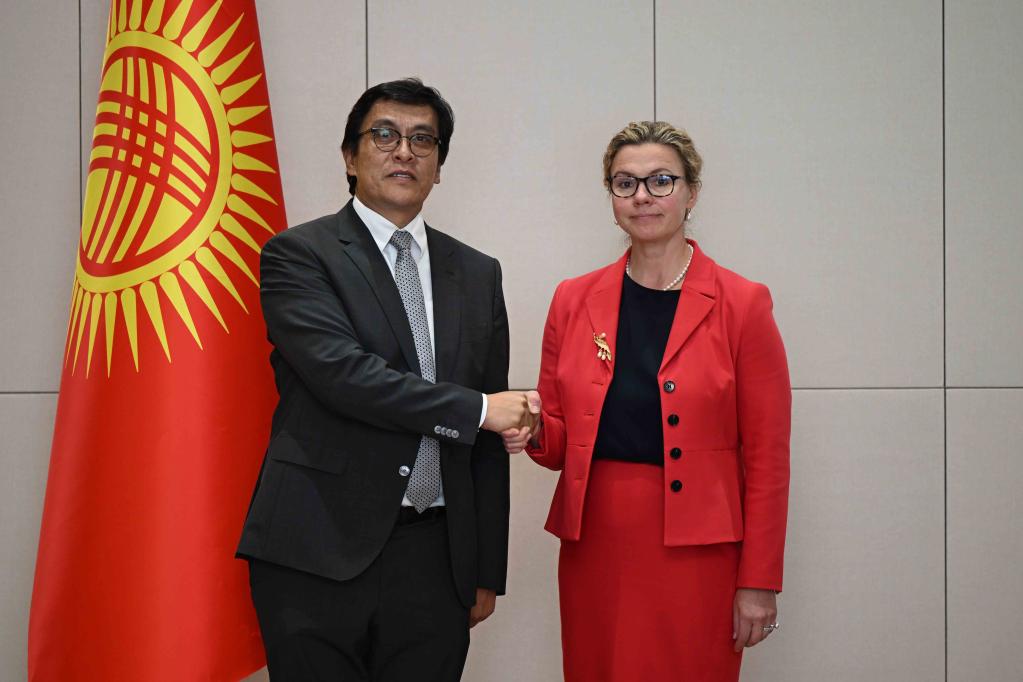
Story
23 May 2025
Kyrgyz Republic unveils 800,000-hectare ecological corridor for biodiversity
Bishkek, 22 May 2025 – A new ecological corridor of around 800,000 hectares, or 8,000 km², has been announced by the Kyrgyz Republic today. The corridor is set to link up existing conservation areas and complete a protected area spanning a total of over 1,2 million hectares, in a landmark move for biodiversity. The UN Environment Programme (UNEP) supported the Kyrgyz government by providing ecological modelling to help define the corridor’s borders. The area will connect the Khan-Tengri National Park and Naryn Nature Reserve, passing through several other conservation areas along the way. The corridor aims to safeguard migration and dispersal routes for key mountain wildlife species under pressure from changing habitat conditions due to overgrazing and climate change. The species include snow leopards, which are listed as Vulnerable on the IUCN Red List of Threatened Species, and its prey species, such as the Asiatic ibex and the argali sheep. This ecological corridor is the biggest to be created under the Kyrgyz Republic’s Law on Specially Protected Natural Areas. Ecological corridors balance conservation goals with sustainable land use. While they are legally part of the protected area system, the corridors allow activities like seasonal grazing with some limitations, ecotourism, and reforestation, provided they do not harm biodiversity or disrupt ecological processes such as wildlife migration. Previously, over 65,000 sheep grazed in the corridor area during summer months. With the corridor's introduction, grazing planning and the rotation of livestock herds will be adapted to reduce this figure by 15,000, leaving mountain pastures more time to recover and providing grazing opportunities for wildlife. The redistribution process, coordinated with local herders and community leaders, aims to protect livelihoods while environmental goals are met.“The establishment of this corridor marks a major milestone in conservation for Central Asia and can serve as a model for the region,” said UNEP’s Europe Office Director, Arnold Kreilhuber. "By creating a network of connected landscapes, the Kyrgyz Republic is leading the way in preserving not only iconic species like the snow leopard, but also safeguarding the nature that people’s livelihoods depend on.” “This is a collaborative effort to conserve our ecosystems without excluding the people who rely on them,” said Mirslav Amankulov, Deputy Minister of Natural Resources, Environment and Technical Supervision of the Kyrgyz Republic. “There are no permanent settlements within the corridor, and we’ve worked closely with herders to ensure fair access to alternative pastureland.”The corridor was established following a modelling study conducted by Humboldt University in Berlin and the National Academy of Sciences of the Kyrgyz Republic under a UNEP-led project. The modeled ecological corridor outlines were presented at community roundtables and received unanimous support from local authorities and scientific institutions.Looking ahead, the country plans to integrate ecological corridors into other sectoral planning and policy - such as national pasture development plans and hunting regulations - to support biodiversity conservation. Monitoring systems, including biomass assessments, will help to oversee pasture use and track ecological health.“Ecological corridors are a crucial way to ensure that, despite the changing climate, ecosystems can continue to provide essential services that people and nature rely on — from clean water and fertile soils to climate resilience and room for migration,” said Johan Robinson, Officer in Charge for UNEP’s Biodiversity and Land Branch, Ecosystems Division. “The Kyrgyz Republic is choosing a more sustainable future for both nature and communities”.To enhance climate-smart conservation in Central Asia, the possibility of establishing transboundary ecological corridors extending beyond the Kyrgyz Republic is being considered.This announcement coincides with the International Day for Biological Diversity on May 22, highlighting the Kyrgyz Republic’s commitment to global efforts in preserving the planet’s natural heritage.Support for the ecological corridor was provided through the UNEP-led ‘Central Asian Mammals and Climate Adaptation’ (CAMCA) project, funded by the International Climate Initiative of the German government, in collaboration with the Convention on Migratory Species (CMS), WWF USA, and two Kyrgyz NGO’s, CAMP Alatoo and Ilbirs Foundation. The project aims to enhance the conservation of flagship migratory mammal species of Central Asia through climate change-informed management and decision-making.Download photos from the newly created ecological corridor here.Notes to EditorsAbout the UN Environment ProgrammeThe UN Environment Programme is the leading global voice on the environment. It provides leadership and encourages partnership in caring for the environment by inspiring, informing and enabling nations and peoples to improve their quality of life without compromising that of future generations.For more information and to arrange interviews, please contact:Aisulu Isabek, Spokesperson at the Ministry of Natural Resources, Ecology and Technical Supervision of the Kyrgyz Republic, press@mnr.gov.kg, +996509301190. Alejandro Laguna, Head of Communication, UNEP Europe Office, laguna@un.org, +41 766910848.
1 of 5

Story
21 May 2025
2025 Report of the Chair of the UN Sustainable Development Group
Six years into the repositioning, 2024 was a hallmark year for the Resident Coordinator system. The Resident Coordinator system continued to deliver for countries, mobilizing UN country teams, donors and partners in support of national development needs and priorities. The findings, detailed in the annual report of the UN Deputy Secretary-General Amina Mohammed, in her capacity as Chair of the UN Sustainable Development Group (UNSDG), are being presented to Member States during the ECOSOC Segment on Operational Activities for Development (20-22 May 2025). The 2024 data underscores how Resident Coordinators are effectively steering UN teams and forging partnerships on the ground to deliver tangible results. Resident Coordinators have been at the forefront of convening country level efforts to accelerate the delivery of the Sustainable Development Goals (SDGs) through robust coordination and convening functions. Read the official document of the report below and browse through the interactive version of the report here. https://bit.ly/UNSDGReport2025
1 of 5
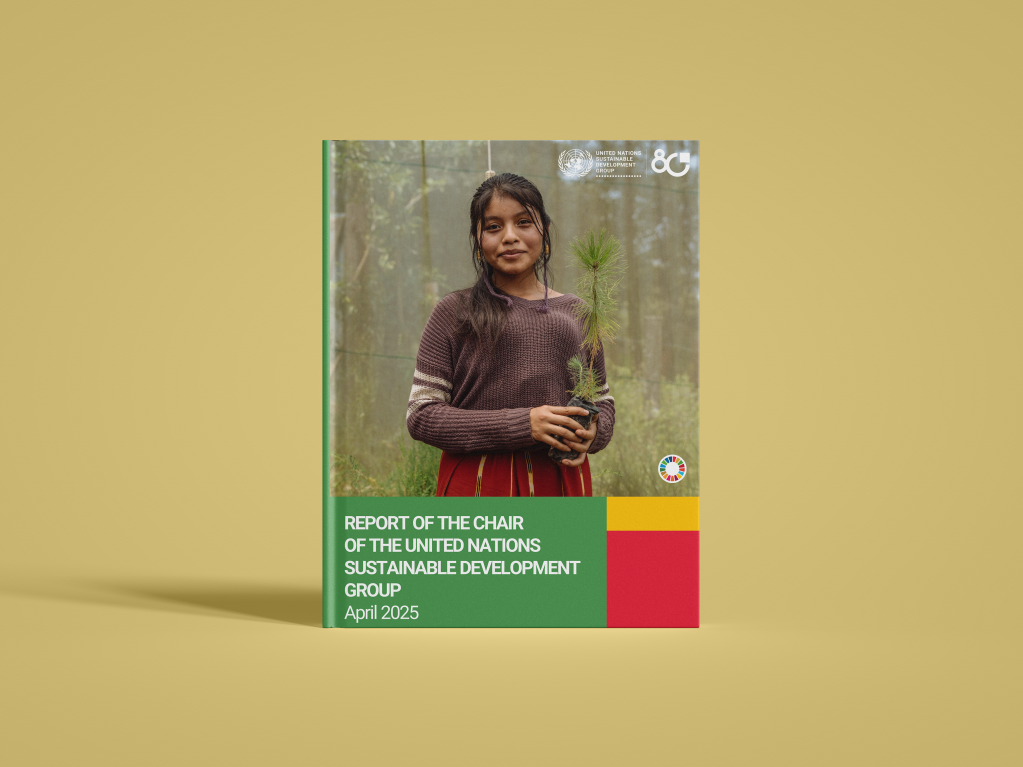
Story
28 March 2025
UN in Kyrgyzstan Annual Result Report 2024
This report reflects UNCT' collective progress in implementing the UNSDCF across its four strategic priorities, aligned with the Kyrgyz Republic’s national development agenda. It highlights how the UN system, in close partnership with the Kyrgyz Government and the people of Kyrgyzstan, has worked to accelerate progress towards the SDGs, building on Kyrgyzstan’s strong commitment to the SDGs, reaffirmed at the 2023 SDG Summit and again at the 2024 Summit of the Future.Read more: https://kyrgyzstan.un.org/en/291795-un-kyrgyzstan-annual-result-report-2024-eng
1 of 5

Story
21 March 2025
UN High Commissioner for Human Rights Volker Türk concludes official visit to Kyrgyzstan
The UN Human Rights Office has had a long relationship with Kyrgyzstan – our Regional Office for Central Asia has been based here since 2006, covering the five countries in the region. I am grateful to the Government for its invitation for me to visit and for the frank and constructive discussions I have had, including with President Sadyr Zhaparov. At a time of global upheaval on the multilateral and human rights fronts, Kyrgyzstan’s engagement with my Office and the wider UN human rights system is very much welcome. National ownership of the human rights cause is paramount. I also welcome Kyrgyzstan’s recent border delimitation agreement with Tajikistan, following years of tensions and clashes. It will be key to ensure its implementation in line with international human rights law.Kyrgyzstan has been experiencing strong economic growth, and has the benefit of a rich variety of civil society organisations and a solid legal and institutional framework. For societies to thrive, they need to be rooted in human rights, non-discrimination and the rule of law. This also reassures investors. An enabling environment, built on solid foundations of good governance, respect for human rights and the rule of law, is good for business.What I have found is that Kyrgyzstan is at an inflection point.In recent years, a series of steps have been taken that have narrowed the space for civil society to function independently. We are seeing worrying signs of undue restrictions on civil society and independent journalism, creating a climate of increasing fear and self-censorship.I am concerned about the number of cases of pre-trial detention and the criminal prosecution of journalists, bloggers, activists, human rights defenders and political opponents in relation to their exercise of freedoms of expression and peaceful assembly. Such emblematic cases are always an alarm bell.When individuals reporting on serious issues that affect all of society, such as corruption, feel under threat, the resultant lack of independent scrutiny can be deeply damaging. It means problems remain unaddressed.One human rights defender spoke to me of her hesitation in demanding access to information and advocating for the rights of the people of Kyrgyzstan: “We cannot protect their rights because we are worried about being called foreign representatives and facing charges ourselves.” Another described the Law on Foreign Representatives and the implementation of vague provisions in the Criminal Code as a sword of Damocles, causing her to constantly question whether any statement could land her in danger.Human rights NGOs have reported widespread self-censorship, with some amending their charters to avoid activities that may be qualified as “political activities” under the law. They worry that stigmatization of their work creates an environment in which people become reluctant to seek their help or cooperate with them. The restriction on peaceful assemblies, in place since 2022, is also of concern. I was encouraged that the Government is discussing lifting this blanket ban. It is also key that the independence of the judiciary is fully guaranteed, and judges do not feel political pressure in carrying out their essential work.The system of “pre-investigative checks” has also been demonstrated to fall short of international human rights standards. This system allows law enforcement officials 30 days to look into a case before registering it – which has been particularly problematic in cases of torture as well as domestic violence, violating victims’ rights to an effective and timely investigation and putting them at further risk. I have recommended that the Government undertake a comprehensive review of legislation that impacts on fundamental rights and freedoms, to ensure Kyrgyzstan’s human rights obligations are fully met. This could be part of the very welcome process of developing a National Action Plan for Human Rights, and should be carried out with the meaningful participation of civil society, including academics, as well as various parts of the Government. My Office here is ready to assist and provide any advice, as well as examples of best practices from other countries. The constructive process around the previous draft law on the mass media sets a good example for how such a review should take place – with the involvement of key stakeholders, including journalists, that ultimately led to the withdrawal of the draft, following recognition that some of its provisions were not in line with human rights laws.In the meantime, I have asked the Government to ensure that laws with vague formulations under the Criminal Code are not misused to suppress legitimate civil society work. There should be zero tolerance for harassment and intimidation of independent lawyers, journalists, bloggers and human rights defenders.My Office has also been advising on the development of comprehensive anti-discrimination legislation for Kyrgyzstan.I would also like to point out how much the National Centre for the Prevention of Torture is a model for the Central Asia region, as the only independent national human rights institution that meets international standards. It will be important to preserve its independence, to ensure that it is well-resourced and has the access it needs to perform its function effectively. I welcome the initial strengthening of legislation on gender-based violence and hope that this process will be taken further forward. There is a need to ensure its full implementation – notably by law enforcement agencies and the justice system – in a gender-sensitive manner, and providing justice to the victims of violence. Creating an enabling environment, where all the people of the country can contribute effectively regardless of their gender, racial or ethnic origin, sexual orientation, disability or other status, benefits everyone. The Ombudsperson´s Office plays an important role in this regard. It will be important to strengthen it in line with the Paris Principles.For everyone to partake in economic growth and enjoy their economic and social rights to the fullest, I also discussed with the Government the concept of a human rights economy. This is an approach that my Office has been advancing globally, asking States to conduct human rights impact assessments on their national budget, to ensure that the rights to an adequate standard of living, health, education and other basic needs are fully respected.Another issue of local and global importance is the imperative to protect the environment. With young people forming at least 35 per cent of the population of Kyrgyzstan, finding ways to mitigate the inter-generational impact of climate change is a priority. I understand that air pollution in Bishkek can get particularly bad in the winter, with this beautiful city ranked as number one on global air pollution indices over several days last winter.It will be important for environmental impact assessments, particularly in relation to extractive activities, to be carried out in consultation with affected communities and made public. I have also advised the Government to consider adopting and enhancing the air quality legislation, especially given the impact on the health of children and older people. Breathing clean air is a key element of the right to a clean, healthy and sustainable environment. As I said to President Zhaparov, and in all my interactions over the past two days, I came here in the spirit of friendship and solidarity with the people of Kyrgyzstan. And with the conviction that human rights provide the best guide through situations where different interests need to be balanced.My Office will continue to work closely with the Government, civil society and others to help ensure the promotion and protection of human rights in Kyrgyzstan and across the region. Rahmat, thank you. ENDS
1 of 5
Press Release
02 July 2025
Kyrgyzstan: Independent torture prevention watchdog should not be replaced, UN experts warn
The UN Subcommittee on Prevention of Torture (SPT) is dismayed at Kyrgyzstan’s decision to abolish its independent torture prevention monitoring body, the National Centre for the Prevention of Torture (NCPT), without public consultation or transparency.The Kyrgyz Parliament has renewed its decision to abolish the National Centre for the Prevention of Torture, the country’s independent torture prevention body, and transfer its mandate to the Ombuds Institution under the new Constitutional Law “On Akyikatchy (the Ombudsperson) of the Kyrgyz Republic”. Despite prior assurances that the authorities would engage in consultation with the SPT during the High-Level Talks, which took place last week, the legislature proceeded in an unprecedented manner to adopt the law through a combined second and third reading on 25 June, without such consultation.“The NCPT is a well-established Kyrgyz national preventive mechanism (NPM), created over a decade ago in accordance with the Optional Protocol to the Convention against Torture (OPCAT), following four years of extensive and inclusive national consultations with the executive, administrative and legislative branches as well as other stakeholders in the Kyrgyz Republic,” said Maria Luísa Romero, the SPT Chairperson.“Dismantling this independent torture prevention institution and transferring the NPM mandate to the Ombuds Institution, which still falls short of meeting the Paris Principles, and doing so without any clear provision for how the Ombuds Institution will carry out this mandate, is a serious setback,” she stated, adding that “Most concerningly, this is now happening through a completely opaque process, with no public consultation, no engagement with stakeholders, and not even the text of the amendments made publicly available. This is plainly incompatible with the requirements of the OPCAT.”The NCPT was established in 2012 through national legislation to implement the obligations the Kyrgyz Republic undertook when it became a State Party to the OPCAT in 2008 and has since been working as its national preventive mechanism.“Notably, it is not only the SPT that recognizes the importance of the NCPT, including its work in preventing torture and ill-treatment, its contribution to human rights in the Kyrgyz Republic, and its influence across the region. The UN High Commissioner for Human Rights visited the Kyrgyz Republic in March 2025 and emphasized that ‘the National Centre for the Prevention of Torture is a model for the Central Asia region, as the only independent national human rights institution that meets international standards,’” she recalled.“We urge all Kyrgyz authorities to halt this course of action and to engage with the SPT on constructive ways to support and strengthen the NCPT’s work for the benefit of all people in Kyrgyzstan,” she said.The SPT’s delegation for the High-Level Talks, was composed of Elina Steinerte (Head of Delegation and Vice-Chair for National Preventive Mechanisms) and Nika Kvaratskhelia (Country Rapporteur for Kyrgyzstan). They visited Bishkek from 25 to 27 June.ENDSFor more information and media requests in Geneva, please contact:
Vivian Kwok at vivian.kwok@un.org
UN Human Rights Office Media Section at ohchr-media@un.orgBackground:
The Subcommittee on Prevention of Torture monitors States parties’ adherence to the Optional Protocol to the Convention against Torture, which to date has been ratified by 94 countries. The Subcommittee is made up of 25 members who are independent human rights experts drawn from around the world, who serve in their personal capacity and not as representatives of States parties.The Subcommittee has the mandate to visit States that have ratified the Optional Protocol to the Convention against Torture, during the course of which it may visit any place where persons may be deprived of their liberty and assist those States in preventing torture and ill-treatment. The Subcommittee communicates its observations and recommendations to States through confidential reports, which it encourages countries to make public.Learn more with our videos on the Treaty Body system and
the Subcommittee on the Prevention of Torture.Follow the UN Treaty Bodies on social media!
We are on Twitter @UNTreatyBodies
Vivian Kwok at vivian.kwok@un.org
UN Human Rights Office Media Section at ohchr-media@un.orgBackground:
The Subcommittee on Prevention of Torture monitors States parties’ adherence to the Optional Protocol to the Convention against Torture, which to date has been ratified by 94 countries. The Subcommittee is made up of 25 members who are independent human rights experts drawn from around the world, who serve in their personal capacity and not as representatives of States parties.The Subcommittee has the mandate to visit States that have ratified the Optional Protocol to the Convention against Torture, during the course of which it may visit any place where persons may be deprived of their liberty and assist those States in preventing torture and ill-treatment. The Subcommittee communicates its observations and recommendations to States through confidential reports, which it encourages countries to make public.Learn more with our videos on the Treaty Body system and
the Subcommittee on the Prevention of Torture.Follow the UN Treaty Bodies on social media!
We are on Twitter @UNTreatyBodies
1 of 5
Press Release
11 June 2025
Joint Strategic Coordination Committee endorsed work plans for 2025
The Cabinet of Ministers of the Kyrgyz Republic and the United Nations system in the Kyrgyz Republic convened for a meeting of the Joint Strategic Coordination Committee under the United Nations Sustainable Development Cooperation Framework 2023-2027 (Cooperation Framework). The meeting was co-chaired by the Chairman of the Cabinet of Ministers, H.E. Adylbek Kasymaliev, and UN Resident Coordinator, Ms. Antje Grawe.The meeting's main objective was to review the progress made in 2024 and to endorse joint priorities for 2025, which are reflected in the newly adopted Joint Work Plans 2025.In his remarks, the Chairman of the Cabinet of Ministers, H.E. Adylbek Kasymaliev, expressed appreciation for the United Nations system’s longstanding and productive cooperation with the Kyrgyz Republic. He emphasized that “the support of international development partners will be essential for the effective implementation of all goals of the 2030 National Development Program.”Ms. Antje Grawe, UN Resident Coordinator in the Kyrgyz Republic, emphasized: “With today’s endorsement of the Joint Work Plans 2025, we reaffirm our collective commitment to accelerate SDG progress in Kyrgyzstan and to leave no one behind, in full alignment with national priorities.”The United Nations Country Team in the Kyrgyz Republic, comprising 27 UN agencies, funds, and programs under the leadership of the UN Resident Coordinator, supports the Government in advancing national development priorities and accelerating progress toward the implementation of the Sustainable Development Goals (SDGs) through the Cooperation Framework 2023-2027. Aligned with Kyrgyzstan’s national development strategies, the Cooperation Framework is implemented through Joint Work Plans, focused on four strategic priority areas: (1) quality social services and decent work; (2) inclusive, green socio-economic development; (3) climate action, disaster risk management and environmental protection; and (4) just, accountable and inclusive institutions and a civil society for peace, cohesion and human rights.The draft Work Plans 2025 were discussed in February this year through broad-based national consultations involving representatives from key government institutions, civil society, labor organizations, the private sector, and development partners.The Joint Strategic Steering Committee of the Government of Kyrgyzstan and the United Nations serves as the highest governing body of the Cooperation Framework, providing strategic direction and oversight for UN–Government cooperation.Media Contacts:
Vasilina Brazhko, Communications Officer at +996775987817 cell phone and WhatsApp
Vasilina Brazhko, Communications Officer at +996775987817 cell phone and WhatsApp
1 of 5
Press Release
05 June 2025
Kyrgyz Republic pilots a disaster risk assessment model to improve decisions on prevention, preparedness, and response
During the pilot, the localized INFORM model was applied on the municipal level in the Suzak District of Jalal-Abad province, one of the most disaster-prone regions in the country. Covering all 13 rural municipalities (Aiyl Aimak), the model provided a holistic view of disaster risk for more than 300,000 residents. The INFORM model provides comprehensive data on potential disasters in Suzak District, establishing a strong foundation for effective disaster management. By utilizing scientific risk assessments, the tool supports informed decision-making, identifying priority areas that require resources. This enables multiple stakeholders to coordinate efforts in anticipating, mitigating, and preparing for humanitarian emergencies.The Government of the Kyrgyz Republic welcomed the results of the localized application of the INFORM model, recognizing its effectiveness. Plans are now underway to expand and further enhance this mechanism to strengthen disaster risk management.
1 of 5
Press Release
23 May 2025
Cabinet of Ministers of Kyrgyzstan and UN Partners Advance Digital Health Transformation to Bridge Access Gaps
Bishkek, 23 May 2025 – The Steering Committee of the UN SDG Fund Joint Programme on Digital Transformation convened today for the first time after the Programme’s launch in September 2024 at the “Yntymak Ordo” to review progress and endorse key implementation and governance tools of the initiative “Bridging the Digital Health Divide.”Opening the meeting, the two Co-Chairs of the Steering Committee, Mr. Azat Ibraimov, Director of the Situation Center for Management and Monitoring of the Implementation of Decisions of the President and the Cabinet of Ministers of the Presidential Administration, and Ms. Antje Grawe, UN Resident Coordinator in the Kyrgyz Republic, reaffirmed the shared commitment to ensuring access to quality healthcare for all, especially for those in remote and underserved areas. The Steering Committee further endorsed the Joint Programme’s governance structure and implementation plan.“The programme helps bridge the digital divide, strengthens system resilience, and creates the foundation for a more equitable and modern healthcare system. At the same time, we cannot allow pilot solutions to end with the conclusion of the project. The outcome of the programme should be scalable services integrated into a unified digital health ecosystem. National information systems must be developed domestically, under national ownership, and be both technically and institutionally sustainable,” said Mr.Azat Ibraimov welcoming the participants of the meeting.“Digital health is about leaving no one behind,” Ms. Grawe emphasized. “Our goal is to ensure that everyone — a person with disability in Batken, a midwife or a doctor in Naryn, or a pensioner in Ak-Suu — has access to digital tools to deliver or receive quality healthcare services enabled by digital innovation”Led by the UN Resident Coordinator and implemented by WHO (lead agency), UNDP, UNFPA, and UNICEF, the Joint Programme supports Kyrgyzstan’s Concept of Digital Transformation (2024–2028) and the Digital Health Care target model Sanarip MED (2025-2027), both of which support comprehensive digital reforms to enhance public health services. In the first nine months, priorities of UN Agencies included leading the development of national digital health standards (WHO), supporting reforms in social protection and disability certification (UNDP), improving access to digital maternal health (UNFPA), and expanding telemedicine (UNFPA, UNICEF). Achievements include:Connecting the national immunization system with newborn and patient records through a digital platform;Creating a new digital tool that helps health workers plan vaccinations more effectively, linked to national health databases;Launching a new system to assess disability more fairly and efficiently, and upgrading the national laboratory system to make medical testing faster, more accurate, and more transparent.The Joint Programme is funded by the Joint SDG Fund’s Digital Transformation Window, with support from the European Union, Spain, Norway, and other Member States. Kyrgyzstan is one of only 13 countries globally to receive this strategic funding.Media Contacts:
Aiperi Alymbekova, Communication Support Officer
World Health Organization (WHO) Kyrgyzstan
Email: alymbekovaa@who.int
Phone: +996 778 119 99
Aiperi Alymbekova, Communication Support Officer
World Health Organization (WHO) Kyrgyzstan
Email: alymbekovaa@who.int
Phone: +996 778 119 99
1 of 5
Press Release
15 May 2025
China supports WFP to improve nutrition for over 100,000 school children in the Kyrgyz Republic
A food handover ceremony was held today at the #86 School named after Kurmahjan-Datka in Osh province, with the participation of the Ambassador of China in the Kyrgyz Republic, H.E. Liu Jiangping, the Deputy Plenipotentiary Representative of the President of the Kyrgyz Republic in Osh region, Mr. Ilyas Tashbaev and the WFP Representative and Country Director in the Kyrgyz Republic, Mr. Kojiro Nakai.“As a strategic partner of the Kyrgyz Republic, China has been supporting the country through bilateral channels, improving infrastructure and other sectors,” said H.E. Liu Jiangping, Ambassador of the People’s Republic of China to the Kyrgyz Republic. “The support from CIDCA aims to enhance the National School Meals Programme via multilateral channels, which will complement China’s existing large-scale assistance and set a good example for South-South cooperation initiative.” In 2025, a total of more than 1,700 metric tons of fortified wheat flour, vegetable oil, rice, and lentils will be delivered to over 300 schools across Osh, Jalal-Abad, and Batken provinces. These schools were identified by WFP and the Ministry of Education and Science, based on poverty levels and nutritional needs.“WFP is grateful for this new contribution from the Government of China. This support will help address the serious micronutrient deficiencies affecting primary school children in three provinces. WFP remains committed to strengthening the school meals programme and contributing to the growth of a healthy and successful young generation,” said Kojiro Nakai, WFP Representative and Country Director.Under the leadership of the Ministry of Education and Science and supported by WFP, the National School Meals Programme has already introduced nutritious meals in over 920 schools, with support from various donors. Each year, WFP not only supplies food but also upgrades school kitchen infrastructure, provides catering equipment, and trains cooks to ensure the safe and nutritious preparation of meals.Together, the Ministry of Education and Science, WFP, and their partners remain committed to further improving the National School Meals Programme—nourishing children for a healthier and brighter future.
1 of 5
Latest Resources
1 / 11
Resources
17 April 2025
1 / 11


